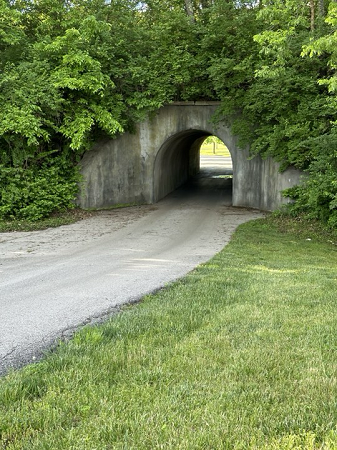Down the Road
 When I was a child, several relatives lived down the road from us. My sister and I often walked to their houses to play with our cousins.
When I was a child, several relatives lived down the road from us. My sister and I often walked to their houses to play with our cousins.
We also spent time wondering what God had down the road for our futures. Where would we live? What would we do?
Down the road has two meanings.
- On the same road or nearby
- In the future
This post will focus on the second meaning.
It pays to plan for what lies down the road.
“Failing to plan is planning to fail.” That quote or similar ones have been credited to Benjamin Franklin, Reverend H. K. Williams, and others. Yet, the source remains uncertain. Regardless of who first said it, the truth endures.
We face an uncertain future.
Although we want to plan, life offers no guarantees. Therefore, we prepare for our goals. Yet, we also prepare for life’s unknowns.
God remains with us both now and down the road.
In spite of life’s uncertainties, we can always count on God’s peace and presence. Whether our plans work out or go down the drain, God promises never to leave us alone. All we have to do is follow Him in faith.
As we travel down life’s road, may we never stray from the straight and narrow.
“Mixed motives twist life into tangles; pure motives take you straight down the road” (Proverbs 21:8 MSG).
Thanks to Beckham Wilson for the suggestion and the photo.
Do you have an expression you want explained or a thought about this one? If so, please comment below.
Subscribe to receive my weekly posts by email and receive a free copy of “Words of Hope for Days that Hurt.”
If you enjoyed this post, please share it with your friends.



 Please welcome one of my favorite authors, Ann H. Gabhart, as today’s guest writer. Ann has been called a storyteller. She’s lived up to the title with thirty-five books published and more stories on the way. Ann keeps her keyboard warm out on her farm where she likes walking with her dogs or discovering the wonders of nature with her nine grandchildren. To find out more about Ann and her books, go to
Please welcome one of my favorite authors, Ann H. Gabhart, as today’s guest writer. Ann has been called a storyteller. She’s lived up to the title with thirty-five books published and more stories on the way. Ann keeps her keyboard warm out on her farm where she likes walking with her dogs or discovering the wonders of nature with her nine grandchildren. To find out more about Ann and her books, go to  Where various products were once made one at a time by craftsmen, the industrial revolution factories had machines to mass produce items. Companies started competing for customers. Some knocked out competition by sneaking in to throw an actual wrench into the workings of the competitor’s industrial machines. With the machine broken, production came to a halt.
Where various products were once made one at a time by craftsmen, the industrial revolution factories had machines to mass produce items. Companies started competing for customers. Some knocked out competition by sneaking in to throw an actual wrench into the workings of the competitor’s industrial machines. With the machine broken, production came to a halt. When cooking, we often put pots of food that need little attention on the back burner.
When cooking, we often put pots of food that need little attention on the back burner.  All my life I have heard people say, “God willing and the creek don’t rise.” My family usually said, “Good Lord willing and the creek don’t rise.”
All my life I have heard people say, “God willing and the creek don’t rise.” My family usually said, “Good Lord willing and the creek don’t rise.”
